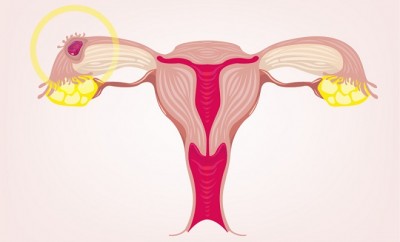When Does Implantation Bleeding Occur – Key Facts You Should Know
What exactly is implantation bleeding, and when does it occur? Moreover, how can you tell the difference between a normal period and implantation bleeding? Find out the answers to these questions including a few more important facts as you read along.
What is Implantation Bleeding?
Implantation bleeding is often mistaken for a menstrual period because of similar characteristics between the two. Once the fertilized egg implants itself to the uterine lining, irritation may occur. This can result to mild spotting, which may be accompanied by some symptoms including soreness and slight cramping. However, there are women who do not experience any discomfort or pain linked with this minor bleeding or spotting.
When Does Implantation Bleeding Occur?
Generally, bleeding occurs at least 10 to 14 days after conception. Since it is often experienced at the time when you expect to have your period, you may not even realize that you are pregnant. For instance, a normal menstrual period has 28 days per cycle, and spotting starts 14 days after the ovulation stage. Women are usually fertile during ovulation, which means implantation can occur about 10 to 14 days after they conceive. With that in mind, bleeding tends to coincide with the usual starting date of your period.
Implantation bleeding may last for several hours or a few days. There are also women who may experience on-and-off spotting, which does not take more than a week. The general idea is that bleeding only occurs for a short while, so there is no need to worry because it stops on its own.
Are There Symptoms Linked with Implantation Bleeding?
In most cases, implantation bleeding is a painless experience that does not have any symptoms. However, there are those who may suffer from nausea, increase in basal body temperature, bloating, and minor cramps during this period. Some women may also complain about having swollen and tender breasts, frequent urination, and sensitivity to particular scents.
A few women may also experience heavy bleeding that may take a few days, although this does not always prove any abnormalities. Nevertheless, it is best to consult your doctor if certain signs and symptoms are associated with heavy bleeding including pathological spotting, severe pain, light-headedness, and prolonged bleeding.
Further Details You Must Know
The type of discharge that you may experience with implantation bleeding is different from your regular period. It is often very light, and the color may vary from pink to brown. As the bleeding progresses, the blood color may turn darker. It is also common for the bleeding to be inconsistent, which means you do not experience it in two consecutive days.
Considering the quality and duration of the discharge, you can say that implantation bleeding differs from a menstrual period. In addition, there may be symptoms linked with this type of bleeding while others may not experience anything uncomfortable at all. Thus, it is best to check with your healthcare specialist if you have some concerns about the bleeding, particularly if it is taking longer than expected. This way, you can obtain the right solution to your condition.













